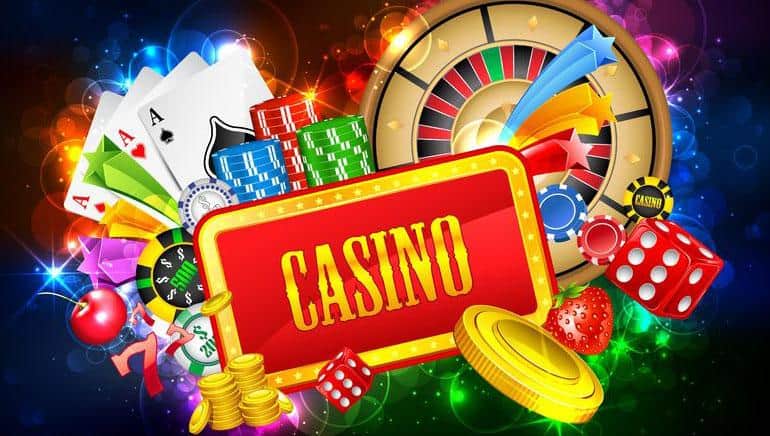
Casino activities have captivated gamblers for decades, pulling them into a world of excitement, luck, and fortune. From the blinking lights of gambling machines to the tactical nature of poker games, these games offer a unique blend of amusement and risk. However, beneath the surface of this glamour and glamour lies a intricate connection of mathematics that shapes every conclusion and choice made within the gaming hall.
Understanding this link between casino games and numerical principles not only improves the player’s journey but may also help participants make wise choices. Whether you are a recreational gambler or a dedicated fan, recognizing the mathematical principles at play can give important understandings into likelihood, odds, and approaches, finally influencing how one approaches these games of luck.
Mathematical Probability in Betting
In the realm of casino activities, mathematical probability plays a vital role in assessing outcomes and guiding gambler decisions. Every game has a unique set of regulations and a specific likelihood framework that influences its mechanics. For instance, in games like roulette, players must grasp the odds of choosing a certain digit or color. The likelihood of certain events happening can be calculated, and this understanding can significantly affect betting strategies.
Gambers also need to be cognizant of the casino edge, which is the statistical advantage that gambling establishments hold over gamblers in the long run. This advantage differs across various games. In 21, expert players can use tactics to reduce the casino edge to as little as one %, while in activities like slots, the casino advantage can be much higher. Comprehending the casino advantage allows gamblers to make informed choices about which activities to participate in and the amount to bet.
Furthermore, likelihood is crucial in the concept of risk versus gain in betting. Every wager carries a particular risk level, and players must evaluate the possible return against that danger. สล็อต Activities like poker require players to not only compute the odds of their own showing winning but also to assess the likelihoods of their rivals’ showings. By utilizing statistical principles to their strategy, players can improve their odds of success and participate more strategically in the exciting realm of casino activities.
Anticipated Value in Casino Games
When discussing casino games, one of the fundamental concepts rooted in math is the expected value. This numerical measure assists gamblers understand the possible outcomes of their wagers over time. In basic terms, expected worth (EV) determines the average amount a player can expect to win or lose per bet if they were to play the game repeatedly. Each game has its unique EV, influenced by the odds and the casino advantage, which indicates the benefit that the gambling establishment holds.
For instance, think of a activity like roulette. The anticipated worth can be calculated based on the particular wager placed. If a gambler bets on a single number, the return is 35 to 1, but the actual chances of winning that wager are 1 in 37 (in Euro the roulette game). This leads in a detrimental expected worth, indicating that, on average, players will lose money over time when playing this kind of wager. Understanding this concept allows players to make better educated choices about which activities and bets may be less advantageous.
Furthermore, the exploration of anticipated value can lead to better bankroll management. Players who understand the mathematics behind their games are often able to set realistic expectations. By acknowledging their potential losses and gains, they can adjust their gambling strategies appropriately, which may improve their overall gambling experience. As a consequence, expected worth serves as a crucial tool for both novice and seasoned players to steer through the frequently unpredictable character of casino games.
Tactics and Odds: The Mathematics Behind Winning
In gaming establishments, comprehending the odds is vital for players looking to enhance their likelihood of winning. Each contest has its own distinct set of chances that dictate winning results, and these numbers are often located in the gaming rules or payout tables. For case, in games like blackjack, players can boost their odds through methods such as counting cards, which relies on math principles to gain an advantage over the establishment. By acquainting themselves with the probabilities, participants can make more educated decisions on when to wager and when to give up.
Furthermore, the concept of expected outcome plays a critical function in gaming tactics. Average outcome assesses the typical outcome of a stake over time, allowing players to judge whether a particular stake is valuable taking. For instance, video slots have a specific payout percentage, which can indicate the expected return a participant can look for on their wagers. By selecting activities with greater average outcomes, participants can lessen the casino edge, boosting their future winnings in the over time.
In conclusion, successful participants often utilize a blend of chance and calculative tactics to boost their gaming experience. While luck is unpredictable, managing a wagering approach based on math insights can lead to more positive results. By making use of techniques such as money management and game selection, participants can leverage mathematics to maneuver through the volatile nature of gambling activities, making the most of their time and investments at the tables.
